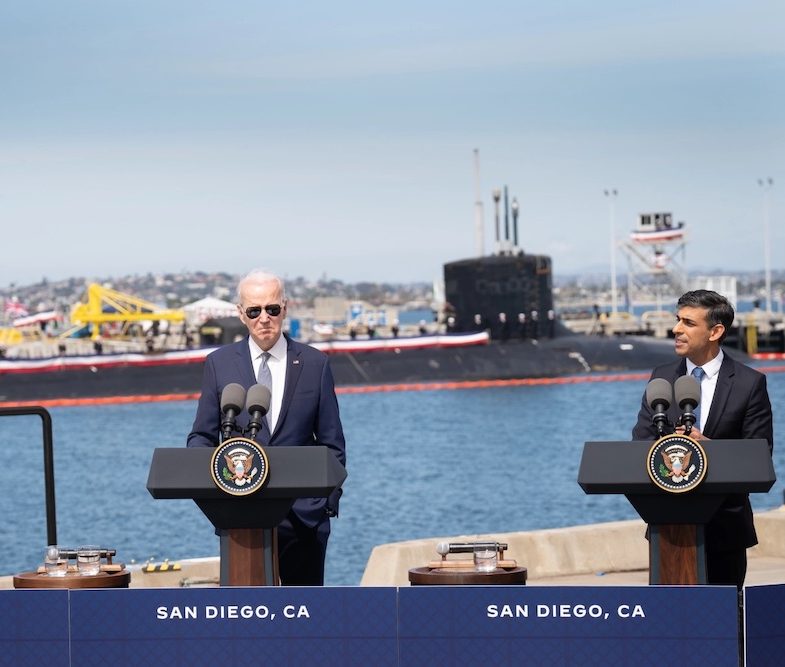Biden’s $370bn green subsides are only a threat if we continue ignoring them

It hasbeen a year since Joe Biden signed the Inflation Reduction Act (IRA), and still British policy hasn’t caught up. The act poured hundreds of billions of US dollars into clean energy, manufacturing, transport, and other net zero industries, mostly in the form of tax credits for corporations willing to invest in American businesses.
Early on, this ignited panic among British policymakers who predicted businesses would flee to the U.S. As Trade Secretary Kemi Badenoch said: “The EU is very worried…Japan is worried. South Korea is worried. Switzerland is worried.”
Most of these fears proved premature, as each of these foreign actors developed their own incentives in key sectors. These include new funding pots, more efficient regulations, and renegotiated trade strategies that maximise mutual potential. This allowed countries around the world to mitigate differences between the US and themselves while spurring new investment in industries needed to avoid a climate breakdown.
But in the year since, panic among British policymakers has given way to a conspicuous silence. Funding has stagnated, trade deals are minimal, and regulations related to our net zero targets are now under threat as politicians claim they are incompatible with economic growth.
The experiences of global countries point in the opposite direction. Rather than a threat, the IRA is an opportunity for British businesses to increase their output, attract private investment, and develop high quality jobs.
New funding commitments, outlined in a new Social Market Foundation briefing, have generated high returns for participating countries. We don’t yet know the full cost of the IRA, but with a ten year estimate at US $391bn, the U.S. treasury likely spent approximately US $40bn over the first twelve months. In that time, the American Clean Power Association estimates $270bn has been invested in clean energy by utilities and private power producers – an amount equivalent to the last eight years’ worth of private investments in the sector. Half (49 per cent) comes from corporations headquartered outside the U.S. Public expenditure may represent a net cost for the Treasury, but it appears to be a net benefit for the wider economy.
The EU, Canada, Japan, South Korea, Australia, and New Zealand are following suit, establishing public funds for strategic industries which last approximately ten years, and come either in the form of subsidies or tax credits. These policies have seen or are projected to see similar success, stimulating private investments worth four to ten times the public expense. Subsidies generally cost between 1.7 per cent and 3.5 per cent of each country’s annual GDP, meaning the UK would need to budget at least £54bn to match their average commitment. Although the Exchequer often claims money for new projects is unavailable, public expenditure on strategic industries is clearly paying dividends where it’s been tried.
There are also cheaper methods the government has at its disposal to encourage growth in strategic sectors. When asked to identify the greatest challenge to decarbonising their industry, 37 per cent of British businesses select political uncertainty, second only to funding at 40 per cent. But rather than an obstacle, regulations can be used as an efficient and cost-effective tool to reassure investors.
The EU has introduced certain domestic content requirements and benchmarks in key sectors to help industries plan their investments in the long term. At the same time, it is introducing fast track options for projects in strategic industries to approve applications within 18 months. In some cases this means introducing a streamlined system with the goal of “one project, one assessment” to save businesses from the bureaucratic maze which can impede investment.
Finally, new trade deals are increasing partnerships around the world. After initially being barred from American EV tax credits, Canadian and Mexican auto-manufacturers agreed a deal that would permit their goods the full benefit. This secured American supply chains and will likely generate high returns for the American economy as these factories will require cathodes, anodes, and other battery components manufactured in the U.S. Similar thinking encouraged further eligibility extensions to include Australia, Japan, South Korea, and other allies. With the benefits clear, it’s time Britain’s policymakers look to our closest regional neighbours for trade deals that boost mutual growth and encourage investment in British industries.
We have a range of options available to improve the business climate by providing the money, regulations, and trade opportunities that can maximise British potential. But by doing nothing, the government is encouraging businesses to invest in foreign countries where they see more secure and attractive investments.